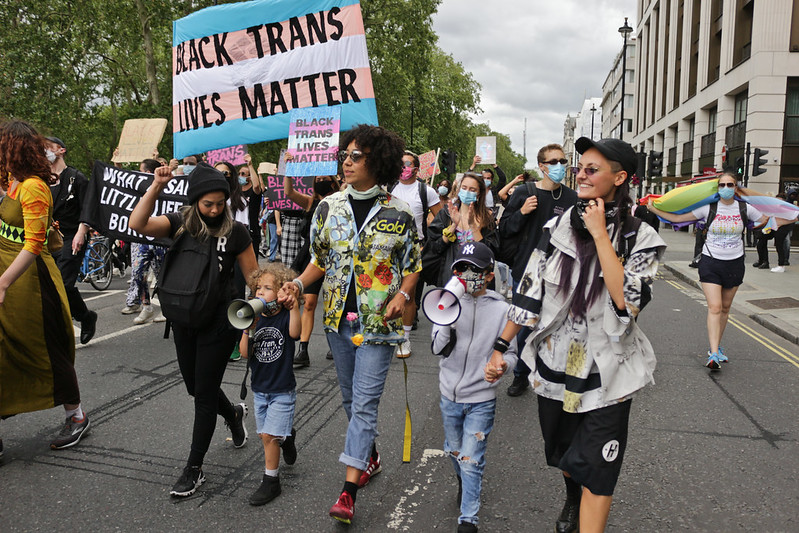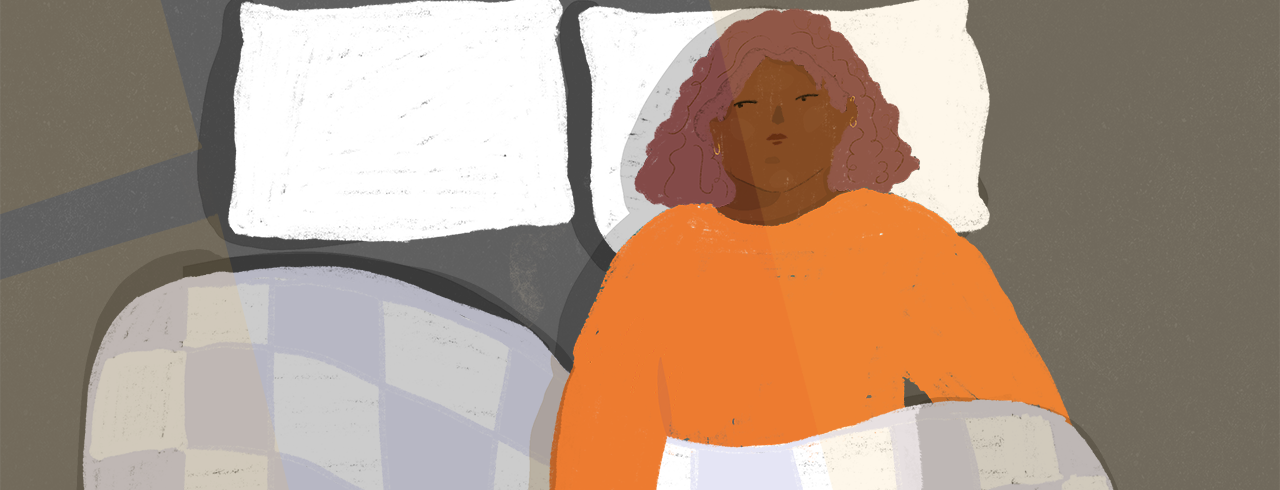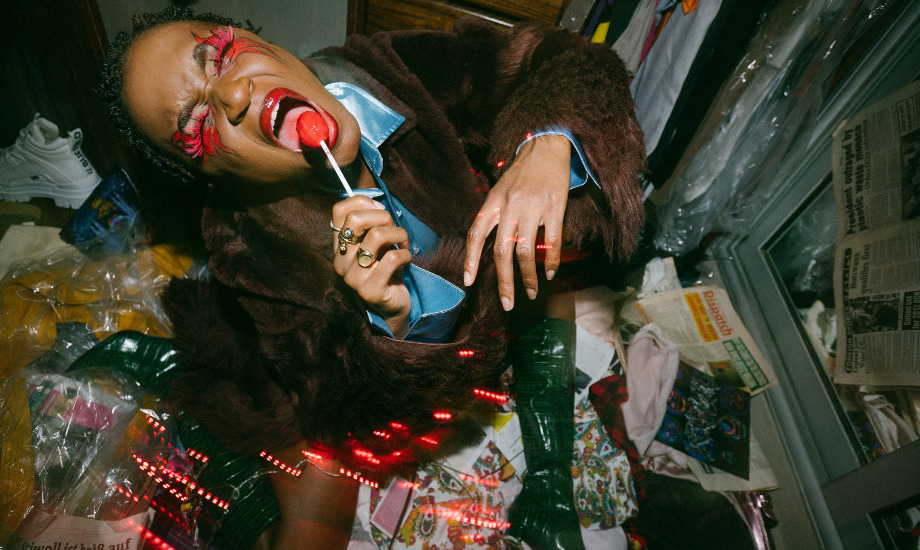
How supermarkets became the bloodiest new battleground in the UK’s culture war
A furore about a supermarket’s Christmas ad is not the end to 2020 anyone wanted, but it’s the one we deserve.
Moya Lothian McLean
19 Nov 2020
Still via YouTube / Sainsbury’s
This week Sainsbury’s – once the name of a supermarket, now a trending term to strike dread in any person of colour – released an advert for the festive season. But predictably, it’s sucked us straight into the whirling vortex of a British culture war that has raged all year.
Gravy Song is a one-minute clip featuring a Black father and daughter discussing what they hope will be a Christmas spent together (the dark cloud of Covid-19 has even made it to the glossy world of marketing), while retro home-video footage of family Christmases past plays on screen. Yes. Very avant-garde.
At best, this advert showed mild representation at the behest of a giant corporation – a small win worth some celebration, but not exactly one that prompts any material change for the UK’S Black population. After all, Sainsbury’s own board of directors is 99% white.
But barely was the advert uploaded when the nation’s outrage industrial complex whirred into action. From scrolling the newsfeed, you’d think the entirety of Britain’s white population, rather than a few anonymous Union Jack Twitter accounts, were up in arms. Headlines screamed about Sainsbury’s being “forced” to “defend” their advert and planned “boycotts” of the store.
“Barely was the advert uploaded when the nation’s outrage industrial complex whirred into action”
A fitting conclusion, perhaps, to a year in which supermarkets have become one of the key battlegrounds in the long-running culture war that has managed to scale new heights over the past 12 months, thanks to efforts that go all the way to the top of British government.
Mainstream media spotted a quick story, fanning the flames of fury. Online, people of all ethnicities went to bat for the supermarket, with tweets and posts decrying the racist reaction reported by the news quickly outnumbering original hateful messages. The thinkpieces flooded in. Whatever the initial story had been, the media-encouraged outrage cemented the narrative surrounding the Sainsbury’s advert as one of racists attempting to cancel a supermarket, again. And of course, a Munya Chawawa sketch mocking the bigots sealed the deal.
In 2020 alone, multiple incidences of supermarkets supposedly being “boycotted” by racists came thick and fast. Remember the Sainsbury’s slave trader statue mix up? Or when Tesco featured a Muslim family cooking itfar? And, most recently, more furore about Sainsbury’s anti-racist stance during Black History Month.
“After a constant stream of complaints for several years, manufactured outrage regarding our entertainment simply fails to land the same punch”
After all that, Sainsbury’s should be on its last legs if we were to believe the empty threats Laurence Fox and co. keep expelling. But it shouldn’t come as a surprise that during the pandemic, architects and enablers of internet outrage cycles have turned their attention to supermarkets.
They’ve got little choice; everyone is sick of hearing them bang on about old TV shows and people don’t care about Ofcom complaints any more. After a constant stream of complaints for several years, manufactured outrage regarding our entertainment simply fails to land the same punch.
Instead, the outrage merchants are looking to local stores. The focus on supermarkets reflects their role during Covid-19; from being a location we visit without thinking (or to simply “feel something” as one wry millennial put it), Tesco, Aldi and co have taken on a new significance. When shelves ran bare in the chaotic early months of lockdown, it was realised just how many households depend on their local supermarket as lifeblood.
Supermarkets have long marketed themselves as representative of the national identity, placing themselves at the core of both the British household and the country’s “values”. It’s not that British people in particular love supermarkets so much; it’s that decades of dedicated advertising campaigns have made us see Sainsbury’s, Tesco, M&S etc. as brands entwined with “Britishness”. Now this concept is no longer synonymous with being white.
With all other options closed, the supermarket has become one of the lone remaining spaces where all demographics of the British public mix, whatever their background. The stores themselves clocked this and have naturally sought to capitalise on it during promotional campaigns. The Great British Supermarket is back, baby! This time with added brown people!
Capitalism plays a role of course. Like many other brands, supermarkets have also taken note of the positive impact inclusive advertising can have on consumer loyalty in an increasingly crowded and competitive market. The harsh spotlight shone on corporations in recent months – thanks to movements like Black Lives Matter and social media offering POC the chance to actually have their grievances against big business heard – is one they’d rather avoid.
“The final result is repackaged racial discourse that benefits no one except the media – churning out half-baked columns and fear-mongering headlines – and the supermarkets themselves”
And while it’s unlikely supermarkets like Sainsbury’s are cynical enough to be playing directly to outrage merchants, both the pseudo-storm over the Gravy Song and their response only boosted the amount of eyes it reached – and increased incentives for many to actively choose to shop at the store.
All we need to remember is this: none of this is particularly new (remember the decades-long fury about supermarkets selling halal meat?), but simply heightened during a time when there’s little else to do and everyone is bored in the house, bored. The battle for the soul of the British supermarket has been going since those spaces started marketing themselves as representative of the national identity.
What has changed is the added ingredients of a pandemic, which forced us to consider how vital Morrison’s is when we realised we’d begrudgingly queue for an hour outside it. Then you’ve got the fact that social justice campaigns are finally filtering through to mainstream advertisers looking to wokewash their brands. Plus we all have time now, time to sit online and follow this bluster when we would usually be out living our lives. The final result is repackaged racial discourse that benefits no one except the media – churning out half-baked columns and fear-mongering headlines – and the supermarkets themselves.
We know the UK is racist. We know that some of the people who shop at the UK’s supermarkets will be racist because we live in a racist society. The questions we should be asking instead are ones of where to go from here. How can we leverage these brand pledges of inclusivity into useful action that will actually aid people of colour on the ground? What use does the local big Tesco serve to our bigger goals? Can we utilise these sites of Britishness even further to bring those who are othered in from the cold? There may not be answers to all of these questions but by god, don’t they seem more productive than yet more stale supermarket discourse?









